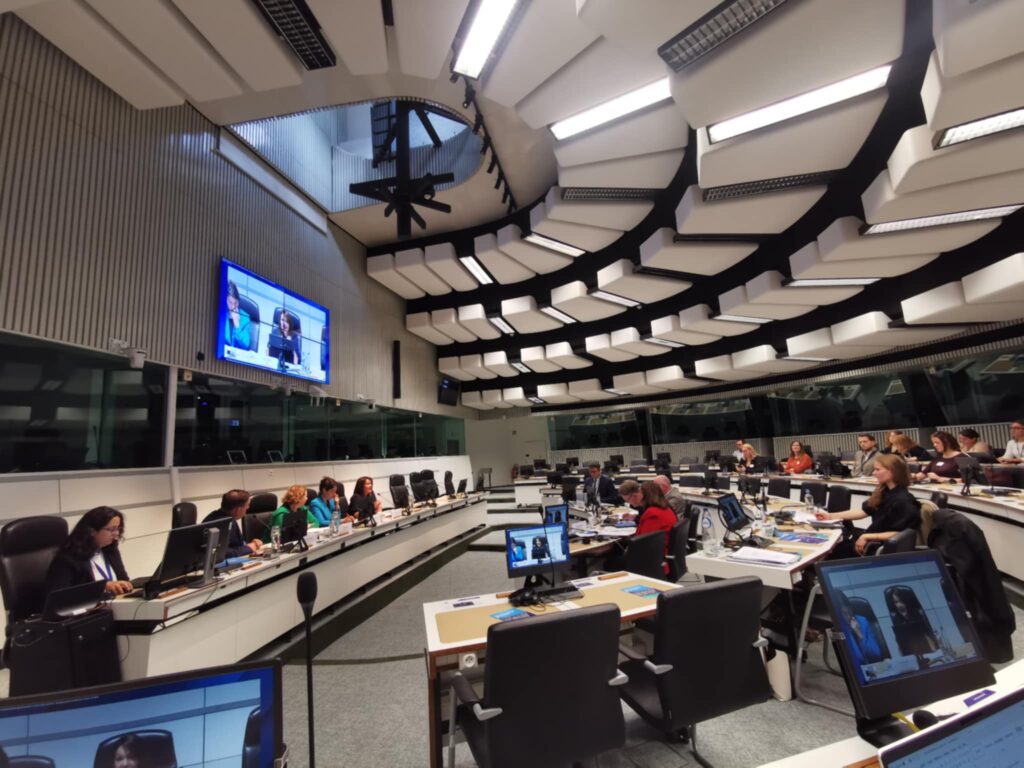EARLALL at the OECD–Committee of the Regions Event: The Role of Subnational Governments in Adult Skills Systems
03/10/2025

On 1 October 2025, the OECD and the European Committee of the Regions (CoR) hosted the high-level launch of the OECD policy paper The Role of Subnational Governments in Adult Skills Systems. Moderated by Kieran McCarthy, Councillor of Cork City and member of the CoR, the event brought together policymakers, regional leaders and EU experts to discuss how subnational governments are shaping the Union of Skills and ensuring place-based responses to today’s skills challenges.
OECD Findings and Opening Reflections
The meeting was opened by Tanya Hristova (CoR) and Karen Maguire (OECD), who underlined the urgency of investing in adult skills amidst the green and digital transitions. Tilde Ussing (OECD) presented the new report’s findings, stressing that responsibilities for intelligence and delivery are shared across governance levels and that coordination is essential to avoid fragmentation.
Governance and Collaboration Across Levels
The first discussion focused on how to strengthen governance models and improve collaboration between local, regional and national levels. Ben Butters (Eurochambres) highlighted the crucial role of chambers of commerce in liaising between businesses and public administrations and underlined that skills must be understood as capital for Europe’s competitiveness. Csaba Borboly (Harghita County Council, CoR) added that training must start with listening to communities. François Decoster (Hauts-de-France, CoR) emphasized how regions can align local labour market strategies with broader priorities, and Yves Magnan (Le Forem, Wallonia Public Employment Service) underlined how regional employment services bridge labour market intelligence with training delivery, ensuring that responses are both rapid and relevant.
Aligning Regional Action with EU Priorities
The second discussion turned to how regional and local actors connect with the EU’s broader strategies. Julie Fionda (European Commission) stressed that the Union of Skills is “not a Commission agenda but a shared agenda,” while Nathalie Guri (Eurocities) called for stronger involvement of cities and civil society. Representing EARLALL, Noelia Cantero highlighted the central role of regions in lifelong learning systems. She referenced Emil Boc (CoR Member and rapporteur on the Union of Skills opinion), who has argued that “regions must be architects, not just implementers” of skills strategies and stressed that this vision must guide the Union of Skills governance.
Cantero added that EU instruments such as Erasmus+ and Interreg work best when co-designed with regional authorities. Drawing on EARLALL members’ good practices, she showed how territorial committees and networks accelerate skills development. She also reflected on the agility shown by regions during the pandemic and stressed the need for EU governance to formally include regional voices: “Regions should have a seat at the Union of Skills governance table.”
End note
The event concluded with Thomas Wobben (CoR) and Karen Maguire (OECD), who reiterated the OECD’s findings and the CoR’s strong commitment to advancing place-based skills policies. Across the discussions, a shared recognition emerged: subnational governments are not merely implementers, but essential partners in shaping lifelong learning strategies, ensuring that Europe’s adult skills systems are resilient, inclusive, and future-ready.

